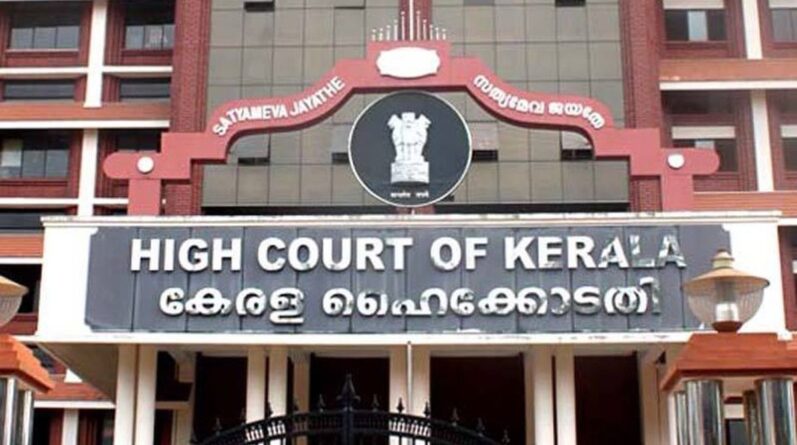KHCAA President Fires Salvo: Says Kerala HC Judges Avoided Event, Influencing Bar Affairs
(By Syed Ali Taher Abedi)
Kerala, 19, November,2025-The usually vibrant annual day celebrations of the Kerala High Court Advocates’ Association (KHCAA) on November 14 unfolded this year under the cloud of unease and pointed absences. While Chief Justice and a few judges graced the occasion, a majority of the High Court’s judges chose to stay away — a development that quickly drew sharp reaction from KHCAA President Yeshwant Shenoy.
“The Annual day 2025 was a celebration of the Bar and not a personal function of its President. In any system, there will be difference of opinion, but that ought not to come in the way of maintaining the cordial relation required of the system.”
For years, the annual day function had been marked by full attendance from the judiciary, symbolizing camaraderie between the Bench and the Bar.
“I am in a state of shock and have been inundated with calls from not just members of the KHCAA, but members of the Bar across the State asking me so many uncomfortable questions as regards the absence of Judges from Annual Day 2025. The shock and the uncomfortable questions raised is not caused by the absence of Judges, but towards the concerted action of the Judges which is perceived by the majority of the Bar as the ‘unionisation’ of Judges of the High Court of Kerala that has shaken their confidence on the Judicial Institution itself.”
This time, however, the empty seats on the dais spoke louder than any address. Shenoy, in an open letter addressed to the Chief Justice, interpreted the judges’ collective non-attendance as a clear message — one that, in his words, “vindicated” his long-standing position that sections of the judiciary were interfering in the internal politics of the Bar.
“The interference of the Judges into the affairs of the Association is so clear because the message to the Bar was simple. “Change your leadership or else we will boycott the Association”. It is for the Bar to decide whether they succumb to the pressure of the Judges or they stand together for the independence of the Bar. Never before in the history of this Judicial Institution has this happened.” Shenoy wrote in his letter
He remarked that it was now up to the Bar to decide whether to “succumb to judicial pressure” or “stand united for the independence of the institution.” His comments hinted at a growing discomfort within the Bar over what he described as a subtle but persistent judicial influence in advocates’ associations and their affairs.
“The interference of the Judges into the affairs of the Association is so clear because the message to the Bar was simple. “Change your leadership or else we will boycott the Association”. It is for the Bar to decide whether they succumb to the pressure of the Judges or they stand together for the independence of the Bar. Never before in the history of this Judicial Institution has this happened. The perceived ‘unionisation’ of Judges has deeply affected the perception of the members of the Bar in the ability of the Judges to be independent or impartial. Without a fiercely Independent Bar, you cannot have an independent Judiciary. I fail to understand why the Judges didn’t understand this simple fact. “The letter said.
Shenoy’s criticism did not spare even the recently elevated judges who, according to him, had chosen to distance themselves from the event. While maintaining that he was “no one to advise the judges,” he asserted that he was merely voicing the collective sentiments of the legal fraternity.
“The Bar is the mother of the Judiciary. The respect a Judge gets from the people is fully dependant on the respect the Bar gives to a Judge. A judge who loses the trust and respect of the Bar will soon lose the trust and respect of the People. It is the Bar that has always come to the rescue of the Bench whenever the independence of Judiciary was threatened.” he said.
The letter went beyond the immediate issue of the annual day attendance. Shenoy raised a series of grave concerns, alleging instances of conflict of interest and impropriety.
“The relationship between the Bar and the Bench is that of Mutual Respect. It is never a one-way street. I will never the one to choose cordial Bar and Bench relations by sacrificing the interests of the Bar. I believe I was always respectful to every Judge, not just in the High Court, but in every court. However, being respectful never meant that I would be amenable to all the requests made by the Judges.” he said
He pointed out that certain judges’ relatives were practising before the same court, that a judge’s name continued to be associated with a law firm, and that the Kerala Federation of Women Lawyers (KFWL) was functioning as a lobbying group within the court’s premises. He also flagged that a helpline number meant for judicial grievances had been entrusted to members of the same federation.
“The members of the Bar are well aware that the spouses, children and relatives of Judges are practicing in the Courts. The members of the Bar are asking me the propriety of a Judge continuing to lend his name to a law firm which has a flourishing practice. The members of the Bar now doubt if ‘Justice’ will be delivered while appearing against such ‘related’ advocates or Law firms that continue to function under the initials of the sitting Judge? The Bar now see the Judges as a unit acting ‘collectively’. I have no answers to give because it is a self-inflicted wound on the Judicial Institution by the collective conduct of Judges. “he asked in the letter
Further, the KHCAA President accused the Kerala State Legal Services Authority (KELSA) of being controlled by select judicial officers and advocates handpicked by judges. His letter also cast serious doubts on the functioning of the High Court’s IT department, alleging irregularities and lack of transparency.
“Kerala Federation of Women Lawyers (KFWL) is one such lobby group. Their existence divided the Women’s Bar. The Full Court took a decision to have every association / entity other than the KHCAA to have their registered address away from the High Court Premises. However, on the basis of a ‘representation’, the KFWL continues within the High Court premises. This would not happen without the active support of some of the Judges. The inertia of the full court to dispose the ‘representation’ is keeping an issue alive and causing serious rift in the women’s Bar. All women advocate need equal treatment and the KFWL stands as an obstacle to that idea of ‘equality’.” The Letter Added
As the letter circulated across legal circles, it sparked a flurry of discussions among advocates and judicial observers. Many saw it as a moment of reckoning for the Bar-Bench relationship in Kerala — once marked by mutual respect, now seemingly strained by suspicion and silence.




